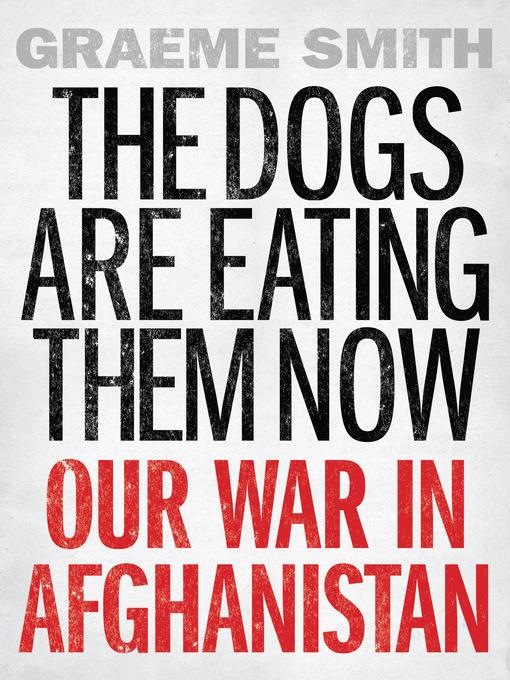
The Dogs are Eating Them Now
Our War in Afghanistan
کتاب های مرتبط
- اطلاعات
- نقد و بررسی
- دیدگاه کاربران
نقد و بررسی

Starred review from November 3, 2014
Smith, a senior analyst for the International Crisis Group and former Globe and Mail reporter, sojourns in the strife-torn city of Kandahar to offer gripping and disheartening testimonies to the hell of war and the resilience of foreign correspondents. In 2005, one year before the American-led “surge,” the impressionable Smith arrived in Afghanistan’s war-ravaged south, smitten by the romance of war reporting. His naïveté is quickly shattered by the complexities of the clan-riven country, which is tethered to its ancient culture and hostile to the American-led mission to eradicate the Taliban. It’s a timely story of the perils of reporting from a region deeply inhospitable to Westerners. Kidnapping is an ever-present threat, and Smith adopts a dizzying menu of defenses after his office is raided by unknown gunmen. These obstacles make his stories about prisoner abuse, the Canadian role in the surge, and meetings with Taliban fighters all the more remarkable. Yet it’s the stir created by Smith’s reporting on the opium trade’s “toxic triangle”—of drug dealers, Afghan government officials, and the Taliban—that finally forces him out of the country. “Troop surges didn’t work; the mission was a debacle,” Smith writes, but he champions further investment in the region. Photos.

Starred review from November 1, 2014
Think Afghanistan is bad now? Just wait until American forces leave entirely and the dragon rises again.The dragon trope is foreign correspondent Smith's, borrowing from the old cartographer's notation that dragons lurk in unmapped corners of the Earth. "The thing about modern civilization," says one battle-hardened GI, "is that we can't stand those empty spots. The dragons fly out and bite you in the ass." So they do, and by Smith's account, the dragons are multiplying. Eloquent and sometimes-hallucinatory, reminiscent at turns of Michael Herr's Dispatches and Tim O'Brien's The Things They Carried, Smith's narrative takes us from bad to worse. In one set piece, a coalition soldier lets loose a rocket with the remark, "There goes a Porsche," precisely because the rocket costs as much as a sports car. Meanwhile, the enemy makes lethal weapons out of scraps, odd bits of fertilizer, plastic buckets and rusty tools. The result is devastating, and Smith does not shy from decidedly not-for-workplace descriptions: "Charred pieces of human flesh stuck to the armour. A television reporter wrinkled her nose at the sight, and I asked her: 'Can you believe they were trying to sell me a story about how things have gotten better in Panjwai?' " Smith is a master of the battlefield description, but he's even better at slyly noting the ironies and complexities of the war: for instance, destroying a farmer's opium crop, while falling under the rubric of the war on drugs, would likely turn the farmer against the United States. Solution? Hire mercenaries to "slip into areas secured by NATO troops and raze the fields, without telling anybody they were sent by the foreigners." Worse, in the author's formulation, is now that we're mired, we're stuck, no matter how we pretend otherwise: "At best, we are leaving behind an ongoing war. At worst, it's a looming disaster." A dragon awaits, in other words. Cheerless and even nightmarish, one of the best books yet about the war in Central Asia.
COPYRIGHT(2014) Kirkus Reviews, ALL RIGHTS RESERVED.

November 15, 2014
From 2005, until he was forced to flee Afghanistan in 2009, Smith (senior analyst, International Crisis Group) covered the war in Kandahar province for the Globe and Mail, Canada's national newspaper. Here the author recounts his experiences as a journalist embedded with Canadian military troops and includes stories of villagers, soldiers, and Taliban insurgents in gripping and often gory detail. Death threats and carnage were always present and led one officer to matter-of-factly comment on the bodies lying in the street that the "dogs are eating them now." Most compelling are Smith's interviews with 30 prisoners tortured by Afghanistan security police and his exposing of the massive drug trade that enriched both government officials and Taliban insurgents. The author claims that large troop surges have failed to bring peace or stable governments, as outside forces are not welcomed by villagers, whose allegiance is to tribal leaders and not the (now former) Hamid Karzai government. However, Smith concludes that continued funding and support of the Afghanistan military may yet neutralize the Taliban. VERDICT Recommended for readers of battlefield accounts and those seeking a better understanding of the Afghani people. For another excellent journalistic account, see Edward Giradet's Killing the Cranes.--Karl Helicher, Upper Merion Twp. Lib., King of Prussia, PA
Copyright 2014 Library Journal, LLC Used with permission.

























دیدگاه کاربران